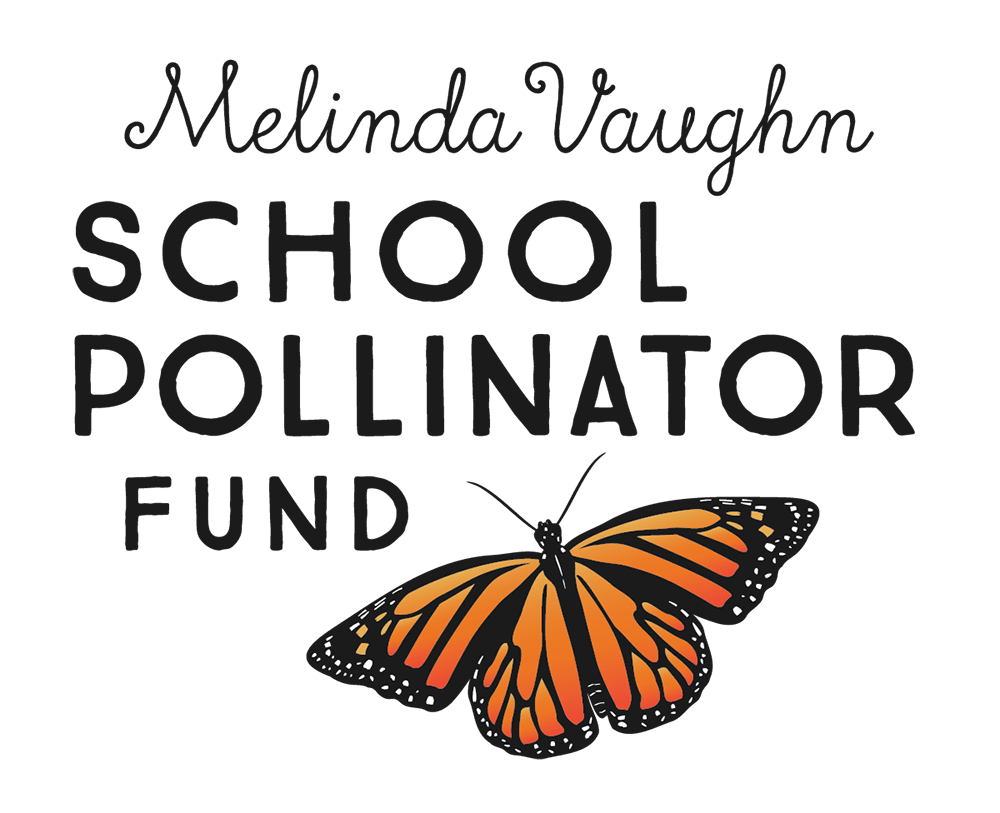
POLLINATOR NOTES
Flower by Flower
Photo © Dawn Parendo
Interviews, Updates, & Stories
Written by the Melinda Vaughn School Pollinator Fund and other contributors.

7 Ways to Celebrate Minnesota’s Pollinators
Happy Pollinator Week! It’s a great time to celebrate pollinators: bees, birds, butterflies, bats, beetles, moths, wasps, and flies. Among the many reasons to do so, they’re responsible for 1 out of 3 bites of food we eat and they’re vital for healthy ecosystems.

Great River Greening Engages Minnesotans to Protect Pollinators
As the Education and Outreach Coordinator for Great River Greening, Jessica Drummond’s role is to connect local communities to the organization’s habitat conservation and restoration work in Minnesota. She does this through partnerships with schools and other community groups as well as volunteerism.
This month she participated in a conversation with the Melinda Vaughn School Pollinator Fund about Great River Greening’s pollinator-focused work.

Winter Pollinator Fun at School: Seed Sowing Activity
A native plant winter seed sowing project in milk jugs or other plastic containers is a great, low-cost way for schools to grow a lot of pollinator-friendly plants from seed for school gardens.

Introducing Our Pollinator Gardening Guide for Schools
We created a guide to take some of the guesswork out of garden design, plant sourcing, maintenance, funding, and other aspects of planning and implementing a school pollinator garden in Minnesota. In line with our mission to support pollinator habitat and related learning at Minnesota K-12 schools, the guide features primarily Minnesota sources and providers.

Keep an Eye Out for the Rusty Patched Bumble Bee
By Alyssa Ford
There are 46 species of native North American bumble bees, and all of them are under pressure from human endeavors: intensive farming, use of agrochemicals, loss of habitat and bee diseases introduced by commercial greenhouse operations. One native American bumble bee, the Rusty Patched Bumble Bee (RPBB), is on the cusp of extinction and is of particular concern to conservationists.

How Pollinator Gardens Fight Climate Change
By Alyssa Ford
Planting a pollinator garden is a natural climate solution, or an action to reduce greenhouse gas emissions and store carbon. According to a 2021 study conducted by researchers at the University of Minnesota, levels of carbon sequestration tripled when retired Minnesota farmland was converted to pollinator-friendly prairie.

Summer adventures with the X Kids
Rachel Dunham, Community Engagement Coordinator at the Xerces Society for Invertebrate Conservation, talks with us about the organization’s new X Kids program.

Celebrating pollinators this week & every week
Pollinator Week is a good kickoff to supporting pollinator conservation year-round. Find ways to get inspired and celebrate Pollinator Week with this rich list of toolkits, films, activities, and more.

St. Pollinators: Three ways to explore St. Paul
By Peter Scholtes
Find a pollinator skyrise, do a pollinator garden walk, or check out a "Nature Smart Backpack!" Plus, more things to do in St. Paul.
